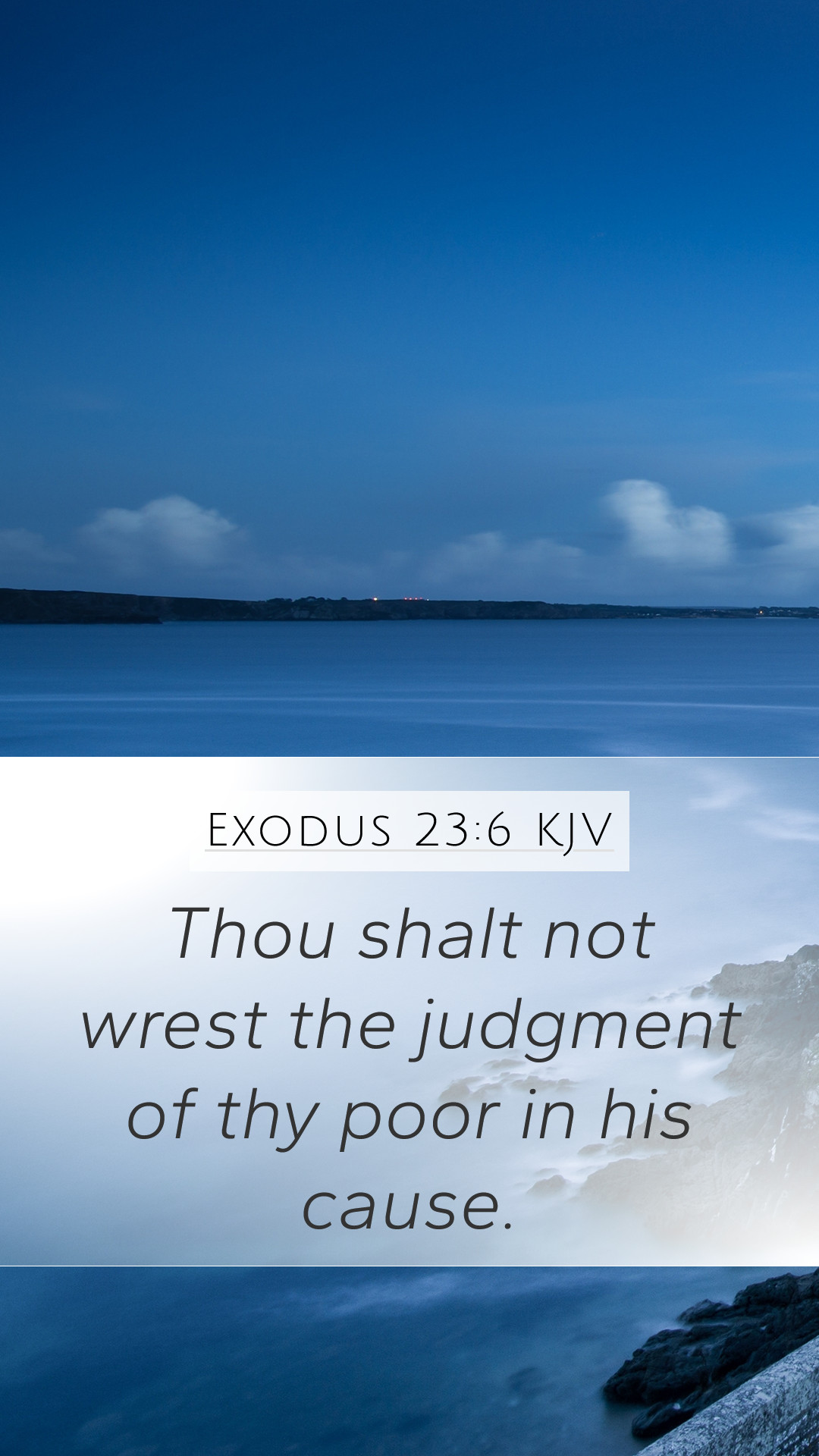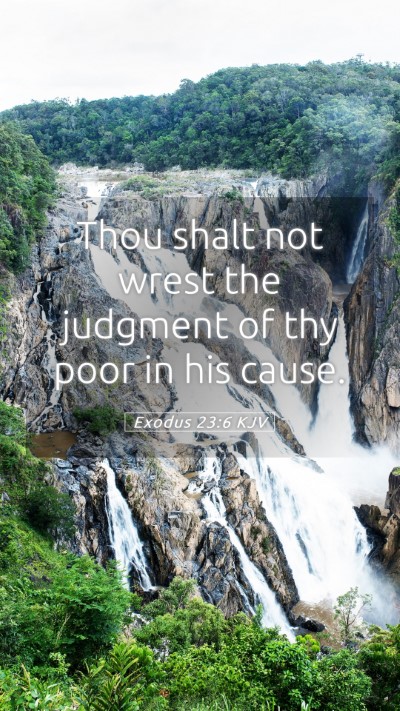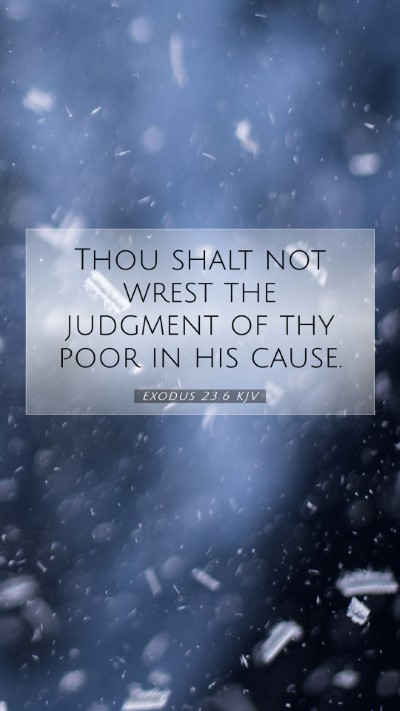Bible Verse Explanation of Exodus 23:6
Exodus 23:6 states: "Thou shalt not wrest the judgment of thy poor in his cause."
Overview of Exodus 23:6
This verse emphasizes God’s commandment concerning justice and fair treatment, particularly focusing on the rights of the poor. It serves as a reminder that everyone, regardless of their social status, deserves fair judgment and consideration in legal matters.
Insights from Public Domain Commentaries
-
Matthew Henry:
Henry explains that this command is about protecting the weak and vulnerable within society. He emphasizes the importance of impartiality in judgment, highlighting that the poor should not be oppressed or unjustly treated because of their financial status. Every individual is created in the image of God, and thus, deserves equal consideration before the law.
-
Albert Barnes:
Barnes elaborates on the theme of justice in this verse. He points out that it condemns any form of bias or discrimination that might arise in legal settings. The principle of fairness is paramount, and the command underscores the duty to ensure that justice prevails without favoritism.
-
Adam Clarke:
Clarke notes that this verse is a reflection of God's character, which demands justice and mercy. He posits that the command also serves as protection for the poor against the injustices they might face from those in more powerful positions. The lack of resources should never serve as an excuse to deny justice.
Understanding Scripture: Themes and Applications
The moral and ethical implications of this verse are profound, urging that we continuously reflect on our treatment of others, particularly the disadvantaged. It beckons readers to seek justice actively and ensure equity in society.
Practical Applications
- Engage in community service aimed at helping the poor.
- Advocate for social justice initiatives within your community.
- Participate in discussions within bible study groups that address issues of fairness and justice.
Significance of Exodus 23:6
This verse not only serves as a legal guideline for ancient Israel but also offers a timeless principle applicable today. It calls for individuals to examine their prejudices and ensure they treat others justly and fairly.
Related Bible Cross References
- Leviticus 19:15: "Ye shall do no unrighteousness in judgment: thou shalt not respect the person of the poor, nor honor the person of the mighty: but in righteousness shalt thou judge thy neighbor."
- Deuteronomy 16:19: "Thou shalt not wrest judgment; thou shalt not respect persons, neither take a gift: for a gift doth blind the eyes of the wise, and pervert the words of the righteous."
- James 2:1-4: "My brethren, have not the faith of our Lord Jesus Christ, the Lord of glory, with respect of persons." (This passage addresses favoritism and discrimination, resonating with the core message of Exodus 23:6)
Conclusion
Exodus 23:6 encapsulates a critical ethical standard that champions the dignity of all individuals, especially the marginalized. By embracing its teachings, one can engage in deeper Bible study insights that inform their understanding of justice and morality in the contemporary world.


